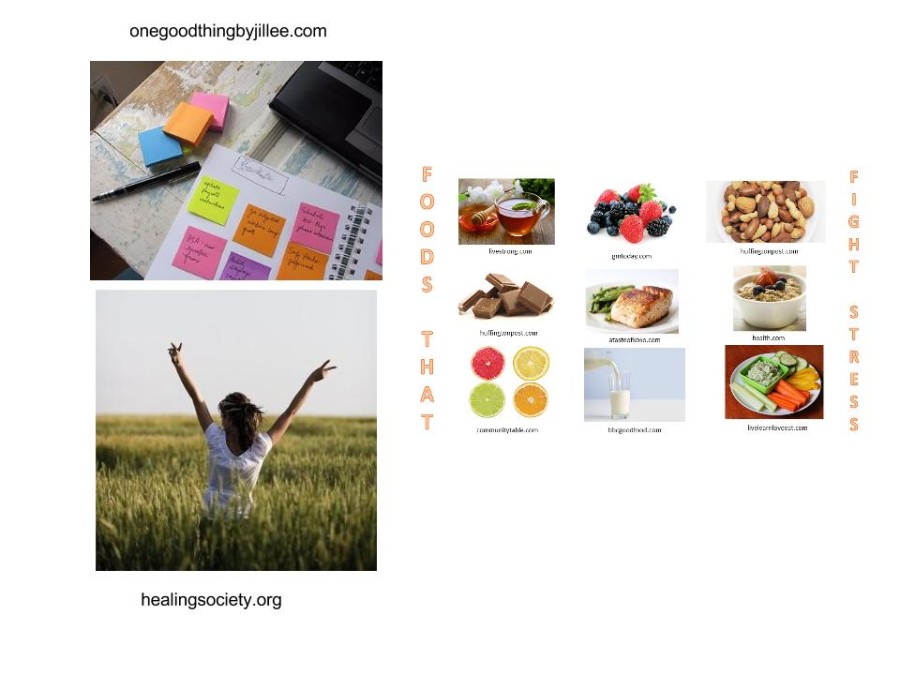Well, okay, we admit: maybe not. But, there are ways to combat the daily stresses that begin to pile up and can begin to bog down your successes, goals, happiness, and general sanity.
From a California Sutter Health study conducted on over a hundred adolescents, a whopping 55% report that they receive the most stress from the general realm of homework and school; expectations and pressures from family and friends comes in at 15%; areas of their social life apply 9% of the pressures they face; the mismanagement and subsequent lack of time accounts for 8%; 4% of the tensions felt are created by sports; finally, the overarching, category known as “other” feeds in the remaining 9%. Similarly, a 2014 inquiry by the American Psychological Association on more than 1,000 teens and 1,000 adults revealed astonishing facts about the burden the nation’s youth is currently under. Overall, results indicate that they experience higher levels of stress than most adults. (More worrying is the fact that, again, most of this stress comes from academics: 83% said that school is a “somewhat or significant source of stress”, 27% affirm that they suffer “extreme stress” during the school year with that figure dropping to 13% during the summer- a time that is supposed to be a break from the work and some of the responsibility of the average 36 weeks of the year- and a full 10% of teens surveyed report that all of the stress had a relative negative impact upon their grades.) Furthermore, 60% of those who took part in the study mentioned that juggling too many activities was a “somewhat or very significant” stressor; 40% asserted experiencing “irritability or anger during the previous month”, 36% noted feeling nervous or anxious, and over a third of adolescents said that they had “laid awake at night” due to stress. Finally, the impact that stress can have hits on a physical level- 32% of participants claimed suffering from headaches, while 21% reported upset stomachs or indigestion, and 23% implied that overextending had caused them to skip meal before.
Here’s the thing: stress is an inescapable and occasionally beneficial aspect of our lives. It can inspire motivation and result in some serious productivity. But too much pressure at one time- well, it’ll make anyone crumble. So, what can you do to ease some of this strain? Luckily for you, dear reader, we here at the Imprint have scoured the World Wide Web to compile a list of some relatively quick and easy solutions to combat this sort of thing.
- Breathe: First and foremost, considering that oxygen is essential to life and whatnot. But really, sometimes stopping to take a deep breath is more important to relaxing than you’d think: it’s been shown to stimulate parasympathetic reactions, which helps to calm you down by lowering both your blood pressure and heart rate.
- Get enough sleep: I know, a foreign concept to the high school student, one that normally invokes a response of, “Sleep, what’s that?” Although scientists still haven’t fully figured out how this happens and why we snooze for such long periods of time, they do know that it allows our bodies to rest and our brains to recharge. Slacking on your recommended 8 hours can result in a variety of health problems and affect memory, judgment, and mood. Many experts have even reported that people would be “happier, healthier, and safer if they were to sleep for an extra 60 to 90 minutes a night.” So, before you decide to get a start on that research paper that’s due tomorrow afternoon at 11 o’clock, you may want to prioritize for your own good and get a bit of shut-eye.
- Stay organized: Most of us have one, whether at home or at school- the particular thing or place that becomes a catch-all for everything, the black hole of your life that could contain papers from 5 years ago next to yesterday’s trash and hey, there’s that science homework that was due last month! Although it may be easier to drop everything here and get around to it later, studies have shown that people who have excess clutter in their living spaces or a variety of unfinished projects are more likely to have elevated cortisol level, the hormone that’s most related to stress levels. To combat this, we suggest starting off small and think about whether you need the item(s)- if not, to the trash it should go; if so, find a proper place to put it, or create yourself a proper place. From here, just continue the routine. Or, y’know, keep the physical and emotional mess that you’ve got going on.
- Exercise: This tends to be a hit-or-miss for people: either you enjoy the sweat and burn, or you stay as far away from gym equipment as you possibly can. Either way, it could be in your best interest to suck it up and buy yourself some comfortable workout gear because scientists have concluded that it can help your body to produce endorphins, which will combat stress hormones and, in layman’s terms, make you feel good. Even a small 10-minute walk can make a world of difference- especially if done in a green space, having been known to place your body in a state of meditation due to “involuntary attention” (something that holds our attention, but at the same time permits time for self-reflection).
- “Simplify”: If you’re like the other 99% of the population, you’ve got days where you could use about 10 other copies of you to go out and help to manage the different tasks you’ve got to accomplish during the day. Unfortunately for us, technology is still a bit expensive, risky, and unethical for that just yet. What else can you do? The answer may be as simple as prioritizing. There will be a significantly smaller amount of stress if you manage one thing at a time, and it’s bound to make focusing easier and doing a task of higher quality faster. Evidence points to multi-tasking resulting in a loss of this concentration for about half a second or so, which not only adds up over time but also can cause damage to your short-term memory.
- Chew a piece of gum, or snack (smartly!): Emotional eating, anyone? Most of us have done it at one point or another- after a hard day, all we want to do is come home, vegetate on the sofa, and stuff our face with a salty, sweet, and general not-so-good-for-us snack food. But hey, science may be on your side here- scientists call it the “gut-brain axis”, as a plethora of data points to the brain and stomach being so closely related that the latter is credited as a major intermediary to stress response. Despite this, analysts do recommend that people do their stress eating mindfully, preferably choosing foods that provide significant mental and physical benefits. Fresh fruits and juices with vitamin C have shown to give benefits to your immune system, helping with stress levels; curling up with a cup of green tea provides a source of L-Theanine, a chemical that helps to relieve anger; a couple bites of chocolate has been proven to regulate cortisol, glucocorticoid (a hormone which promotes energy replenishment and cardiovascular function, effectively a helper in stress-relief), and can assist in stabilizing your metabolism; a dab of honey in a snack or alone can reduce brain inflammation, which helps to fight anxiety and depression. Or, for a quicker fix, pop in a piece of gum: a 2008 study conducted proved that the action can help to relieve anxiety, reduce stress levels, and improve overall alertness.
- Let some emotion out: Ever been advised against bottling up emotions, told that it’s better to let it all out? Well, the old and seemingly-sage advice may not be too far off base. Funny enough, science supports that everything from crying uncontrollably to laughing hysterically will help to lower your stress levels. The tears produced in crying, for instance, can remove chemicals in the body that develop when you’re feeling life’s pressures, as well as lower blood pressure and reduce the manganese amounts in your body- which are known to affect mood. On the opposite side of the emotional spectrum, a good laugh has been shown on multiple occasions to increase blood flow throughout the body and give you an immunity boost. Or, perhaps do both in the company of friends- just talking to a loved one can help to invoke your body’s “relaxation response”, helping to ease any anxiety that may be felt, and often times more talkative people have been found to be happier. So, next time you’re feeling a little down in the dumps, to hesitate to call up a friend, let loose the water works, giggle until your stomach hurts, or a combination of all three- your brain will thank you for it later.
- Write it out: “Dear Diary…” If you’re anything like the author of this article, you’ve had to have started a day-to-day account of your life at least 20 times in your childhood… and then promptly fell off recording in it after a week, allowing it to sit in a forgotten corner of a desk drawer or in an untouched closet corner. But you may want to dig around to find the lost book or pick up a new one, because keeping a journal has been shown to effectively relieve stress-related symptoms due to its’ “meditative and reflective effects”. By forcing you to unplug from technology and as a result calm your mind, recording things can help to “facilitate problem solving and reduce stress of negative thoughts”. Overall, the task can both clear your mind and be empowering. (Don’t worry, you can call it a journal if that helps kill the whole diary-stigma; we won’t tell.)
- Get those 5 senses working in your favor: Popping in a piece of 5 Gum isn’t the only thing that helps to stimulate your senses, or help to ease your nerves (see number 6 of this list). Sight, smell, and sound are just as important as taste here, so of course we’ve got recommendations related to those as well. Listening to music has often be credited with better academic results and improved moods, but there is actual science to back up that belief. Tuning in to a musically-pleasing sound will trigger biochemical stress reducers, which do exactly what they sound like they do: putting you in a better frame of mind and helping to calm you down. Although most experts will recommend classical music due to its’ noted ability to slow the heart rate, lower blood pressure, and decrease some of the stress hormones in our body’s (plus, who doesn’t love some Bach or Beethoven to get pumped up in the morning?), really any kind of music will flood the brain with “feel-good neurochemicals” like dopamine. Even the simple act of humming will relieve stress and keep you from burning yourself out. Pleasant scents have also been observed to stimulate smell-receptors in the nose that connect to a section of the brain that regulates emotion, with practices like aromatherapy often being used to help this. Specific scents like citrus can relax us by increasing the levels of the stress-hormone norepinephrine, and coffee aromas prove for some to reduce other hormones that can invoke stress. Even something as elementary as “visualizing” what we want or a happy place for us, so to speak, has been proven in an assortment of studies to ease anxiety levels.
- Unplug or plug into electronics: There’s no debating that technology has an ever-increasing role in our society. Usually, the technology is intended to somehow make our lives better, and most times (when it cooperates), it does. But, is technology proving to have a negative effect on our mental state? Well, results are varied. On the negative side of things, uninterrupted computer use has been connected to stress, sleep loss, and symptoms of depression, especially that done late at night and before bed. Additionally, smartphones in particular are linked to higher stress levels, mostly attributed to people feeling as if they must respond to messages and notifications at all times. Conversely, a Cleveland Clinic study of 300 participants found that those who used web-based stress programs had decreased stress levels and scored higher in tests of emotional well-being. So, the answer? Essentially, watch your usage and surf the web responsibly, people.
- Take a break: Although this method may seem like the most obvious, many people forget this one. Frequently, those working diligently on a task that they must finish think that they can plow through the task more efficiently and far more quickly if they work through until they finish. Contrary to this well-intended thought, however, is the fact that a short break has revealed to disrupt the body’s stress response cycle, which can temporarily “shut down” your brain. This not only gives you a mental rest, but also moves ideas that you’ve been seriously thinking about in your logical left brain to your more creative right one- resulting in more productivity. Not that you can use the excuse of “I’m not being lazy, I’m allowing my stress cycle to break” next time you’re feeling particularly unproductive, but a short time out won’t kill anyone- it’ll actually help.
Of course, this list doesn’t cover anywhere close to all of the noted ways to help halt stress and anxiety in its tracks. But it does give a series of helpful tips that can allow you to begin covering your basis. And really, maybe the best way for you is one unlisted and unpopular. The whole intention of the practices are to relieve some of the stress in your life, so whatever works for you: keep it up. Clichés happen to prove true in this case: life is too short to be anything but happy, so don’t stress the small stuff.








